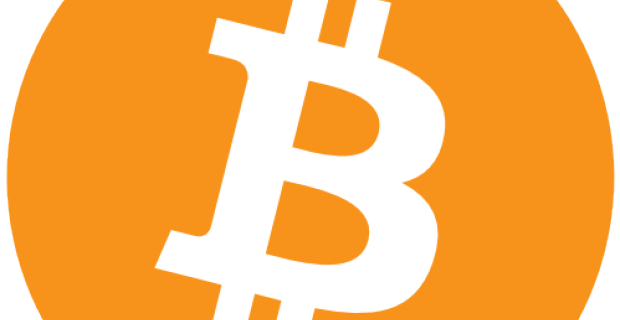The Five Most Useful Properties of Bitcoin

Bitcoin has received plenty of hype as the money of the future over the past few years, but what are the properties of this digital asset that set it apart from everything else on the market? What are the features of Bitcoin that get people to use it in the first place?
Blockstream President Adam Back attempted to answer the question of what differentiates Bitcoin from other forms of money during a recent presentation at Paralelni Polis in Prague. He noted that a good question to ask someone interested in Bitcoin is: ”What’s most important about Bitcoin to them?”
Bitcoin’s most useful features are the ones that cannot be found anywhere else. These are the features that would lead most people who use the digital currency to abandon it if they were no longer available to users (in no particular order).
1. Bearer Ecash
The first differentiating feature of Bitcoin is that it’s a bearer ecash. This means that it works like physical cash. Back explained, “It’s irreversible. You make a payment; it’s done. You can’t take it back.”
Other important aspects mentioned by Back were: There’s no third party, no central point of trust and no bank involved in the system. “It’s unseizable because it’s bearer,” he said.
In the case of virtual versions of fiat currencies, the digits in one’s bank account act more as an IOU for physical cash than any sort of real asset. Bail-ins are useful illustrations of this point.
2. Permissionless
The permissionless nature of Bitcoin is a key selling point in the eyes of developers. If someone wants to build a financial application on top of Bitcoin, there’s no need to obtain permission from anyone; just ask the operators of the various marketplaces operating on the dark web.
Back explained how permissionless innovation has always been a key feature of the Internet:
“The Internet opened up permissionless innovation, and the permissionless nature of it is significantly credited with driving the fast pace of innovation. Many people think what Bitcoin will allow is that kind of rate of innovation in financial payment networks, where it’s so far been relatively closed and more like the closed telephone networks pre-Internet.”
Tying in with the permissionless nature of Bitcoin is its borderless and network neutral properties. Bitcoin being borderless means that it can be used in any country with access to the Internet (or even without Internet).
“Network neutral meaning that there’s no kind of authority or central party at the base layer who can say, ‘Well, I don’t like that transaction,’” Back said.
Back pointed to WikiLeaks donations as an example of the network neutrality point. In 2011, private payment processors were simply pressured to enact a financial blockade against WikiLeaks; this was not the result of a court order or any new law.
It should be noted that miners do have the power to create their own transaction selection policies. The centralization of mining has been pointed out as a serious issue when it comes to the possibility of censoring transactions that are undesirable to various governments around the world. Improvements to the next useful property of Bitcoin on this list, privacy, can reduce the effectiveness of that attack vector.
3. Privacy
Privacy is one of Bitcoin’s most important features, but the reality is that the state of privacy in Bitcoin is quite poor. A recent report from the Open Bitcoin Privacy Project found that improvements to privacy are desperately needed to keep Bitcoin independent from outside threats. Indeed, privacy affects nearly every other property of Bitcoin on this list.
There are a variety of improvements to privacy in Bitcoin currently in development. It’s possible that some of these options, such as Confidential Transactions or Zerocash, will eventually be implemented as sidechains to Bitcoin. This would allow these features to be tested in a real-world environment before eventually coming to the main Bitcoin blockchain.
A lack of privacy harms Bitcoin’s fungibility, which, in turn, decreases its usefulness as a bearer ecash. The permissionless nature of Bitcoin is also put into question if transactions are too easily tracked on the blockchain.
Bitcoin relies on privacy features to survive due to its utility in black and grey market use cases. These use cases are what bootstrapped the entire Bitcoin economy in the first place. Silk Road and WikiLeaks donations were the first two major use cases for Bitcoin.
4. Fungibility
Fungibility is a basic attribute of any money. The precedent for fungibility in currencies was set by a Scottish court case back in the 1700s. The case involved a man, Hew Crawfurd, who sent an associate two bank notes in the mail, but they went missing before they arrived at their destination. One of the banknotes then showed up at a the Royal Bank of Scotland, and Crawfurd took the bank to court in an effort to take back what (he thought) was rightfully his.
Back explained what would have happened if the bank was forced to return the note to Crawfurd:
“If the ruling had been the other way [and Crawfurd] had gotten his notes returned to him, then nobody would want to accept banknotes without rushing to the bank and depositing them. That would cause a currency to basically fail at its primary purpose.”
The story of the recent ShapeShift.io hack is a good example of how bitcoins (and ether or other cryptocurrencies) are not completely fungible right now. Once the exchange realized it had been hacked, it contacted other exchanges and told them to watch for the hacker’s stolen funds. The hacker’s funds were frozen on various exchanges.
5. Virtual Commodity, Nonpolitical Currency
According to Back, the final attribute of Bitcoin that makes it useful is that it’s a virtual commodity and a nonpolitical currency, much like gold in the physical world. This is where Bitcoin gets its nickname “digital gold.”
To this point, Back explained, “There is no central party that can adjust the rate of new coin production.”
This helps the system avoid various issues, such as inflation, commonly associated with central banks and fiat currencies.
At the recent 2016 MIT Bitcoin Expo, Bitcoin Core contributor Cory Fields said the fact that there hasn’t been a hard fork to increase Bitcoin’s block size limit is a sign that the network may be doing a good job when it comes to remaining decentralized (and nonpolitical.)
These Features Make Bitcoin Useful as Money
It is a combination of these attributes of Bitcoin that make the digital commodity useful as money. There are many reasons why people use Bitcoin, but nearly ‒or perhaps all ‒ use cases can be traced back to the above-mentioned features in one way or another.
Xapo CEO Wences Casares once gave a presentation where he talked about the process of how Bitcoin could become money. It would first become a store of value (thanks to the attributes covered by Back in his recent talk), then it would be useful as a medium of exchange and finally, it could be used as a unit of account.
Near the end of his talk, Back noted that Bitcoin is already useful as a store of value and medium of exchange to many people, but its usefulness as a unit of account is negatively affected by short-term price volatility.
Source: Nasdaq
Related Posts
 5 reasons Why someone would use Bitcoin
5 reasons Why someone would use Bitcoin Bitcoin Extends Loss After China’s Central Bank Warns Investors
Bitcoin Extends Loss After China’s Central Bank Warns Investors Bitcoin: A 21st Century Currency Explained By a Wall Street Veteran
Bitcoin: A 21st Century Currency Explained By a Wall Street Veteran 5 Things you should know about trading cryptocurrency in 2018
5 Things you should know about trading cryptocurrency in 2018 TechCrunch Creates a New Series on Cryptocurrencies and Blockchain Technology
TechCrunch Creates a New Series on Cryptocurrencies and Blockchain Technology
























